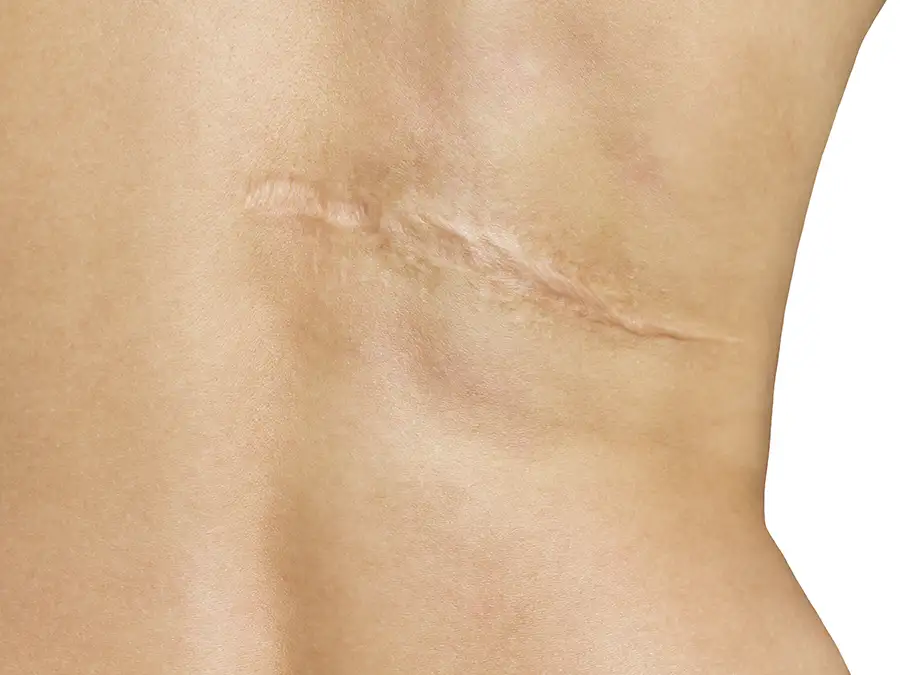
Understand how an amputation or the loss of a limb can impact your future financial needs and compensation in a Miami car accident.
Amputations resulting from car or motorcycle crashes represent some of the most life-altering injuries a person can endure. These traumatic events not only lead to immediate physical loss but also to long-term psychological and financial challenges.
This article will explore the common causes of amputations, the potential compensation available, and the unique challenges associated with calculating and securing the compensation accident victims need.
If you want to get personalized legal advice based on your unique situation, reach out to the knowledgeable Miami accident attorneys at Redondo Law to schedule a free consultation.
How common are amputations in the U.S.?
According to the Amputee Coalition, more than 2.7 million people in the U.S. have lost a limb, and this number is expected to almost double by 2050.
What’s the financial impact of these injuries on victims and their families?
The overall costs related to losing a limb are significant. In fact, amputation-related hospital expenses amount to about $10 billion in the U.S. annually. Over a lifetime, health care costs for those who experience an amputation amount to about $509,275, compared to only about $361,200 for individuals without limb loss.
What are the most common causes of amputations?
Amputations, or the removal of a limb or part of a limb, can result from a traumatic event or surgery, with some of the most common causes being:
- Acute traumatic injuries. Sudden, severe injuries from car accidents, industrial accidents, or severe burns can damage limbs beyond repair, making amputation necessary to save the patient’s life or prevent further health complications.
- Vascular diseases. Conditions that affect blood flow, such as peripheral arterial disease (PAD) and diabetes, can lead to poor circulation in the limbs. Over time, this can cause tissue death (necrosis), requiring amputation.
- Cancer. Certain types of cancer may necessitate amputation if a tumor is aggressively invading bone and muscle tissue, especially in cases where other treatments are ineffective.
- Infections. Severe infections that do not respond to treatment can lead to gangrene, where the affected tissue dies. In some cases, amputation is the only way to prevent the infection from spreading to other parts of the body.
Car accidents, in particular, are a significant cause of traumatic injuries leading to amputation. High-impact collisions can directly crush or sever limbs or cause such severe damage that amputation becomes a medical necessity to address complications or preserve overall health.
What is loss of a limb due to an accident?
Loss of a limb due to an accident refers to the amputation or dismemberment of an arm, leg, hand, foot, or other extremity as a direct result of injuries sustained in an accident. The loss can occur at the accident scene itself due to the traumatic force involved, or it may be medically necessary to amputate the limb later to save the person’s life or to prevent further health complications, such as infection or necrosis.
The loss of a limb is a life-altering event, often requiring long-term medical treatment, rehabilitation, physical therapy, and the use of prosthetic devices, along with significant adjustments to daily life and activities.
A guide to scarring & disfigurement compensation
Understand your right to personal injury compensation for a scarring or disfigurement injury in Miami.
How does the loss of a limb impact compensation in a car accident claim?
The loss of a limb significantly impacts compensation in a car accident claim due to its profound and lasting effects on the victim’s life. This type of injury not only results in high medical costs but also affects the individual’s ability to work, engage in previously enjoyed activities, and maintain a certain quality of life.
Here are some key factors in how the loss of a limb might impact compensation:
- Medical expenses. Compensation typically covers economic damages like medical costs associated with the accident, including emergency care, surgeries, hospital stays, prosthetics, rehabilitation, and any future medical treatments or adjustments related to the amputation.
- Lost wages and earning capacity. The victim may be compensated for lost wages during recovery, and if the amputation affects their ability to work in their chosen profession, they may also be entitled to compensation for lost future earning capacity.
- Pain and suffering. This includes compensation for the physical pain and emotional distress caused by the injury and subsequent life changes. The psychological impacts of losing a limb, including potential issues like phantom limb pain, depression, or anxiety, are also considered.
- Lifestyle modifications and assistive devices. Compensation may cover the costs of modifications needed in the victim’s home, vehicle, or workplace, as well as the cost of prosthetic limbs and other assistive devices.
- Rehabilitation and therapy. Costs for physical and occupational therapy, which are crucial for adapting to life after an amputation, are included in the compensation.
- Loss of quality of life. Compensation can also address the loss of enjoyment of life and the inability to participate in hobbies or activities previously enjoyed by the victim.
- Long-term care. In cases where the victim requires ongoing care or assistance, compensation can include the costs of such services.
In Florida, as in other comparative negligence jurisdictions, the total compensation can be adjusted based on the victim’s degree of fault in the accident. However, given the severe nature of losing a limb, these claims often result in significant settlements or judgments. An experienced car accident attorney can help navigate the complexities of the claim, ensuring that all current and future impacts of the injury are adequately addressed and compensated.
Can family members of amputation victims receive compensation for loss of consortium?
Yes, family members of amputation victims may be eligible to receive compensation for loss of consortium as part of a car accident claim or lawsuit.
Loss of consortium is a type of compensation intended for the spouse or close family members of the victim that covers the loss of companionship, affection, help, and intimacy due to the victim’s injuries. Amputation can profoundly affect the dynamics and emotional aspects of a family relationship, and loss of consortium aims to compensate for these non-economic damages.
A guide to Florida car accident negligence claims
Learn how to prove negligence after a car accident in Miami so you can increase your chance of a successful accident claim.
What are the challenges in valuing claims for amputation injuries?
There can be several challenges with determining the value of a claim involving an amputation due to the complex and multifaceted impact of such injuries on a victim’s life, including:
- Quantifying non-economic damages. Amputation affects victims beyond just their financial losses. Pain and suffering, loss of quality of life, emotional distress, and loss of consortium are significant but challenging to quantify.
- Projecting future costs. Determining future medical expenses, prosthetic needs, and rehabilitation costs can be complex, as these can vary over time and depend on technological advances, the victim’s adaptation, and other health factors.
- Assessing impact on earning capacity. An amputation can drastically alter a person’s career trajectory and earning potential. Calculating these future economic losses requires careful consideration.
- Comparative negligence considerations. In Florida and other states with comparative negligence laws, the victim’s compensation can be reduced if they’re found partially at fault for the incident, adding complexity to the valuation.
Unfortunately, insurers often attempt to minimize the value of claims involving amputations and other catastrophic injuries by disputing the extent of the disability, the necessity of certain treatments, or the cost of future needs.
Because of this, it’s crucial to consult with an experienced accident attorney before accepting a settlement offer to ensure the full value of your claim is recognized and adequately compensated.
What role do medical experts play in proving the extent of injury and future medical needs in amputation cases?
Medical experts play an indispensable role in estimating future costs in amputation cases. These professionals provide authoritative insights into the nature of the amputation, the expected recovery trajectory, and the ongoing medical care required.
Moreover, medical experts are pivotal in detailing the victim’s future medical needs. They can offer detailed forecasts regarding necessary surgeries, prosthetic needs, physical therapy, and other rehabilitation services, including the associated costs.
By providing evidence-based assessments and projections, medical experts help ensure that compensation claims accurately reflect the true extent of financial, physical, and emotional support the victim will require.
Get help from an experienced Miami accident attorney
Navigating a car accident claim following an amputation can be an overwhelmingly complex and challenging process, but you don’t have to go through it alone. With a deep understanding of Florida’s legal system and a commitment to fighting for the rights of the injured, Mike Redondo and his team at Redondo Law can provide invaluable support in securing the compensation victims rightfully deserve.
From consulting with medical experts to accurately assessing the value of your claim to negotiating with insurance companies, experienced Miami accident attorney Mike Redondo stands ready to assist you every step of the way.
His dedicated approach ensures that your physical, emotional, and financial burdens are acknowledged and addressed, allowing you to focus on your recovery and rehabilitation.
Learn more about how Redondo Law can help you get maximum compensation for your accident claim by filling out the form below to schedule a free consultation.



